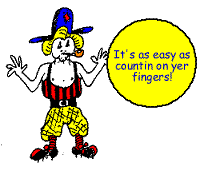Copyright ©
2003
themathlab.com

|
350 Converting Percents to Decimals and Fractions
![]()
370 Using Equations to Solve Percent Problems
|
Copyright ©
2003 |
|
350 Converting Percents to Decimals and Fractions
370 Using Equations to Solve Percent Problems
|
Home | About
Us | Algebra| Dictionary | Games | Geometry | Gym | Humor | Lab | Magic | Natural Math | PreAlgebra | Resources | Teachers Only | Toolbox | Treasures | Videos | Wonders | Writings |
Copyright © 1999-2020 themathlab.com
